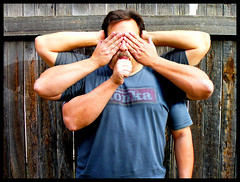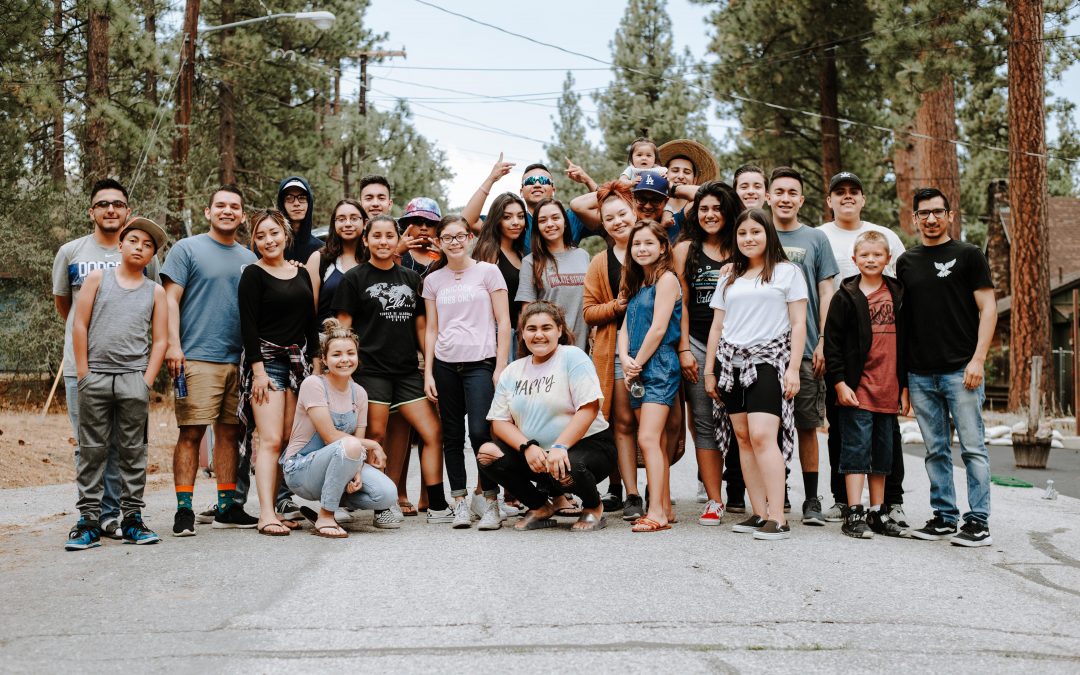
Canonical and Creative Commons Meet Donations Target
Melissa from the [Creative Commons](https://www.creativecommons.org/) pointed me to the [rather good news](https://creativecommons.org/weblog/entry/19086) that Canonical’s offer to match Creative Commons donations up to $3000 has already been matched:
> [Just five days ago we announced](https://creativecommons.org/weblog/entry/18952) that [Canonical](https://www.canonical.com/) would be generously matching every donation dollar for dollar for the next week – up to $3,000. Well, we met that goal in record time! Thanks to everyone who donated in the past five days and had your donation doubled – for a total of $6,000 going toward our annual campaign to sustain CC!
> Many thanks to Canonical for their ongoing support of free culture and Creative Commons.
> We still have a long way to go to reach our $500,000 goal for this year’s campaign, so please [donate today](https://support.creativecommons.org/donate) and show your support for a culture of sharing!
Thanks to everyone who donated, and if you haven’t donated yet, go and [contribute](https://support.creativecommons.org/donate)!

One Year Anniversary

One year ago today, I married the love of my life, Erica. From the minute we went on our first date, I knew I wanted to spend the rest of my life with her. We instantly developed a close connection; a bond that spans beliefs, interests, ambitions and tastes. Since that day we have not only carved out a life with each other, but grown a partnership that is strong and connected, underlined with a lust for life, experienced and shared together.
When it comes to relationships, I have always been inspired by my parents. They have been together for thirty years and they still hold hands, tell each other every day that they love each other, and put each other at the center of their lives. Erica and I found that connection in each other, and I look forward to spending the rest of my life with her. Bacon is happy. 🙂

The Intersection Of Quality And Expectations
There has been a little bit o’chatter on the tubes recently regarding quality and our recent release, [Ubuntu 9.10](https://www.ubuntu.com/). There we were on Thursday, champagne in hand, kicking a new release out the door and while I have seen countless reports of happy users with effortless upgrades and hardware and software working better than ever before, there are of course some reports of things going less-well, some broken upgrades and unexpected quirks.
Those of us involved in the Ubuntu project, like anyone involved in any kind of endeavour, are emotionally invested in our work. When we hear of problems, it hurts us, and it is tempting to get a little defensive and find fault in those who criticise. Well, I don’t want to denigrate the experiences of our users who face problems: if something goes wrong, that user’s experience is genuinely marred. Irrespective of whether the fault was in our package, with hardware, with networking, in the upstream version of the software or elsewhere, that user had a bad experience, and we need to come together as a project to help prevent these problems from occurring again.
What I am conscious to do though is to put things in a little bit of perspective. It is tempting to believe that the sky is falling when we see patterns of negative outcomes: that is the way human beings are wired up. This concern can be further confounded when journalists write articles that look at a *portion* of the picture; a news-wire always makes things look more worrying than they really are. Then again, that’s what journos do: they look for patterns and they report on them. Hell, I used to be a journo, and that is what I was expected to do with the publications that I wrote for.
In the interests of keeping things in perspective, I just wanted to remind us all of some of the things going on in the background that I think are worth remembering. Take these for what they are, but I think they go a long way in helping to understand the picture before us.
Firstly, *criticism is a sign of success*. Ubuntu is arguably the most popular Linux distribution in the world, and has been growing every year since it started. This release of Ubuntu outdid each previous version in terms of how much data we shifted on release day. “[With enough eyeballs all bugs are shallow](https://en.wikipedia.org/wiki/Linus%27_Law)” is one of the foundational attributes of Open Source and therefore it is not entirely surprising that when we kicked out a new release of the world’s most popular desktop Linux distribution, there were more eyeballs, more hardware, more networks, more devices, more configurations, more expectations and therefore more opportunities for things to go awry inside these attributes. If we then combine this with the natural inclination for human beings to communicate complaints as opposed to share praise, it is also not entirely surprising that we see these patterns before us, and that journalists report on said patterns.
Around the time we set the Karmic Koala loose, many comparisons were made to Windows 7. Of course, Windows 7 has generated an incredible amount of press, and the mere fact that we are being compared to the most dominant Operating System in the world is something that I consider an achievement. 11 years ago when I joined the Linux journey, it took 2 weeks to get the bloody thing installed, there was barely any device support, you needed a degree in rocket science and integration was something that happened to other people. Microsoft never stood still and we needed to catch up, but today we are direct competitors. This is a tremendous testament to the upstream community and the Ubuntu community for building an integrated system.
There is one key difference between our quality story and Microsoft’s though: we are *transparent*. You can download all of the source code that comprises Ubuntu, you can see all of our bugs, you can see all our patches, and because the software is free, you can download it freely and try it out, if only for shits and giggles. With a transparent development and quality assurance process, a culture of openness and transparency develops and we are all frank and honest about defects. Speaking as one dot on the Internet, I work for Canonical, a company directly invested in Ubuntu, and I feel comfortable reporting public bugs and defects in Ubuntu and I feel comfortable talking about what rocks it and what ails it: it is part of the Open Source culture in which we all exist. I love this attribute of free software: we are not afraid to talk about problems, and due to the open nature of our environment, the opportunity exists for success.
Fundamentally, if someone experiences problems with software, we need to resolve those problems. The global Ubuntu family is proud of all that we have achieved so far on this journey and we are firmly committed to the road ahead. Karmic was a ballsy release: we shipped some adventurous new technology and in the short six-month cycle that we are committed to, we tried to ship the most exciting, feature-full and compelling release that we could. It is this exact reason that attracted me to Ubuntu back in 2004: it was a project that was unafraid of pushing the envelope. The difference is that now we have millions of people who are judging our work, many of which have stories that we will never hear.
We have a tremendous opportunity to embrace these challenges. With our [Ubuntu Developer Summit](https://wiki.ubuntu.com/UDS) coming up in a few weeks, and with us focusing on a Long Term Support (LTS) release that is underlined by stability and enterprise-grade maintenance and support, we have an opportunity to really indulge in stability, QA and testing. As ever, this is a story in which we can [all play a part](https://qa.ubuntu.com/) and I welcome you all to join us.

Not Tolerating The Intolerant

Thanks to my friends over at [ZDNet](https://blogs.zdnet.com/) for allowing me to post another guest article on their [Between The Lines](https://blogs.zdnet.com/BTL/?tag=trunk;content) column. This time I have written an article discussing the importance of a productive, pleasant and pleasurable community that rewards great work and celebrates the exchange of both agreeable and challenging opinions, ideas and views, and how intolerance can risk and undermine that community.
Go and read [Not Tolerating The Intolerant](https://blogs.zdnet.com/BTL/?p=26848).

The Art of Community #1 Culture Book on Amazon.com
It may have changed by the time you read this, but [The Art of Community](https://www.artofcommunityonline.org) has now hit the #1 slot for the Business and Culture category *Amazon.com*:

You can see it on [this page](https://www.amazon.com/gp/bestsellers/books/3639/ref=pd_zg_hrsr_b_1_4_last) and you can check out the [Art of Community Amazon page here](https://www.amazon.com/Art-Community-Building-Participation-Practice/dp/0596156715/ref=sr_1_1?ie=UTF8&qid=1250533187&sr=8-1). Go and buy a copy and support the project, folks!
Today I also did a webinar about the book and you see it [here](https://www.intronetworks.com/files/TheArtofCommunity-JonoBaconWebinar.wmv). Thanks to [Intro Networks](https://www.intronetworks.com/) for the opportunity!

Art of Community Webinar Soon
Just a quick note: I am doing a webinar on my book The [Art of Community](https://www.artofcommunityonline.org/) at 9am Pacific today.
You can join us [here](https://tinyurl.com/yzd5yjv). 🙂

Canonical Matching Creative Commons Donations
Here at [Canonical](https://www.canonical.com/) we are all big fans of the [Creative Commons](https://creativecommons.org/). For those of you unfamiliar with them, they have created [a set of Free Culture licenses](https://creativecommons.org/about/licenses/) that make it [simple for people to release open content](https://creativecommons.org/choose/). They also run a variety of resources to make finding and remixing content simple and empowering.
In the Ubuntu community we have celebrated these freedoms with the [Ubuntu Free Culture Showcase](https://wiki.ubuntu.com/UbuntuFreeCultureShowcase): a competition in which we select free culture content that is included with each Ubuntu release. In addition to this, I am personally a huge fan of the Creative Commons: I have released two albums (The Big Red Recording and the [debut Severed Fifth album](https://www.severedfifth.com/)) and my recent book [The Art of Comunity](https://www.artofcommunityonline.org/get/) under Creative Commons licenses. All of my [blog entries](https://archivedblog.jonobacon.com/) are similarly licensed.
A little while back Melissa Reader from the Creative Commons emailed me asking if Canonical would be interested in matching donations made to the Creative Commons up to a maximum of $3000 over the period of a week. This means that if you donate $1 to the Creative Commons, Canonical will also provide $1 until the $3000 total has been reached. I am proud that Canonical are able to support this worthy campaign.
Remember, this is going to happen only for **the next week**, so go and [DONATE](https://support.creativecommons.org/donate)!

Don’t Listen Alone: The LugRadio Documentary – Now Available Online
Last year we wrapped up [LugRadio](https://www.lugradio.org/) after five seasons, over 2million downloads and six live events. For over a year now [Tony Whitmore](https://tonywhitmore.co.uk/) from the excellent [ubuntu-uk Podcast](https://podcast.ubuntu-uk.org/) has been working on a documentary chronicling the history of the show, and packed with interviews, behind-the-scenes footage of how we planned a show, the studio, LugRadio Live USA and more. He premiered the hour-long documentary at LugRadio Live 2009 to resounding applause and acclaim, and it is now available online, and freely available.
You can watch it from your browser here:
### Part 1
*Can’t see it? [click here](https://blip.tv/file/2801438)*
### Part 2
*Can’t see it? [click here](https://blip.tv/file/2801474)*
You can also download the full documentary from [here](https://www.archive.org/details/Dont_Listen_Alone).
You can read more about how he created the documentary (on Linux, no-less) [here](https://tonywhitmore.co.uk/blog/2009/11/04/dont-listen-alone/). Thanks so much, Tony!

Start Your UDS Blueprint Registering Engines
In a few weeks the [Ubuntu Developer Summit](https://wiki.ubuntu.com/UDS) kicks off in Dallas. There will be discussing a wide range of topics across seven tracks: *community, kernel, desktop, qa, foundations, mobile* and *server*.
We are about to begin scheduling sessions, and I just wanted to invite those of you who are attendting to propose a sessions for the event. Before you do anything you **must** go to [https://launchpad.net/sprints/uds-l](https://launchpad.net/sprints/uds-l) and click the **Register yourself** link to mark yourself as attending the event.
To register a blueprint follow these steps:
1. Go to https://blueprints.launchpad.net/ and click the *Register a Blueprint* button.
2. Enter all the Blueprint information and using the *Propose for sprint* combo box, select **uds-l**.
3. In the Blueprint summary screen click the *Subscribe* link and if you consider yourself absolutely required to attend the session, select the *Participation essential* checkbox.
When you have done this we platform managers will see the blueprint in the scheduling system and we are ready to roll.
Please try to get all blueprints registered ASAP.

The New Shot Of Jaq Website Is Open

Just a quick note to let you good folks know that the [Shot Of Jaq](https://www.shotofjaq.org/) website is now open at [www.shotofjaq.org](https://www.shotofjaq.org/) – come and join the beginnings of our community. If you have no idea what *Shot Of Jaq* is, [read this](https://archivedblog.jonobacon.com/2009/10/19/announcing-shot-of-jaq/).
The very first episode of *Shot Of Jaq* will be released on **Tuesday 24th November 2009**. Exciting times!

